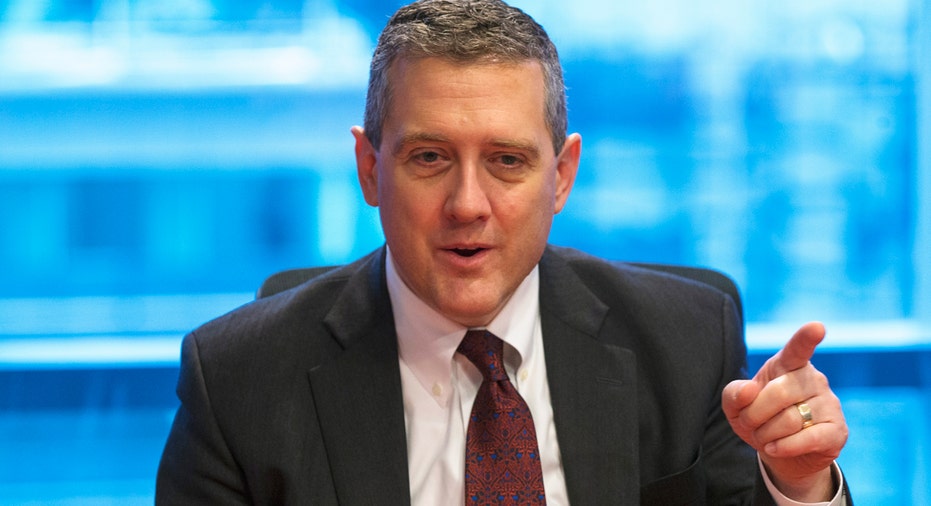Bullard: Rate Policy 'Extreme' Given Economy's Performance

Federal Reserve Bank of St. Louis President James Bullard again made the case for interest rate rises in a speech Tuesday. Conventional rules of thumb about how to make interest rate policy argue for "normalization of U.S. monetary policy based on cumulative progress" toward the Fed's job and inflation goals, Mr. Bullard said. The Fed "has arguably achieved its objectives as well today as it has at any time since 1960" and it is time for it to seriously consider ending its current near zero interest rate stance, he said, adding U.S. rate policy is "extreme" given the economy's current performance. Mr. Bullard's comments came from materials for a presentation he is to give in Washington before a gathering of the National Association for Business Economics. The official isn't currently a voting member of the interest-rate setting Federal Open Market Committee. He has in recent speeches pressed for the Fed to begin raising short-term rates. Most Fed officials expect to raise rates this year. But they delayed the decision at their mid-September meeting to take stock of how worrisome international events might affect the U.S. Key Fed officials have said over recent days that while it remains their expectation rates will rise, this view isn't a pledge and what the Fed does depends on how the economy performs. Mr. Bullard has been arguing in favor of a rate rise because he believes that at 5.1% the unemployment rate is about where the Fed wants it to be. And while inflation has fallen short of the Fed's 2% target for over three years, he is confident that inflation will rise over time. Mr. Bullard noted that even with rate rises, the Fed will continue to offer strong support to the economy. "Policy will remain exceptionally accommodative even as normalization proceeds, because policy settings are far from anything that could be called restrictive." He added, "this continued accommodation will provide plenty of insurance against any remaining risks to the U.S. economy, and simultaneously it will mitigate against the dangers of maintaining extreme policy settings in an environment where conventional gaps have essentially narrowed to zero." Mr. Bullard said in his presentation that he rejects the idea that the economy is in unique circumstances relative to the past, and that a different policy path is called for as a result. He said he believes inflation is also likely higher than what conventional price pressures describe, and he expects inflation to move back to target as the influence of falling oil prices subsides. Mr. Bullard also rejected in his presentation the idea the economy has shifted into a new general level of interest rates which calls for a different Fed policy path, and he said while global events are important, central bankers should continue to make policy based on domestic concerns.



















